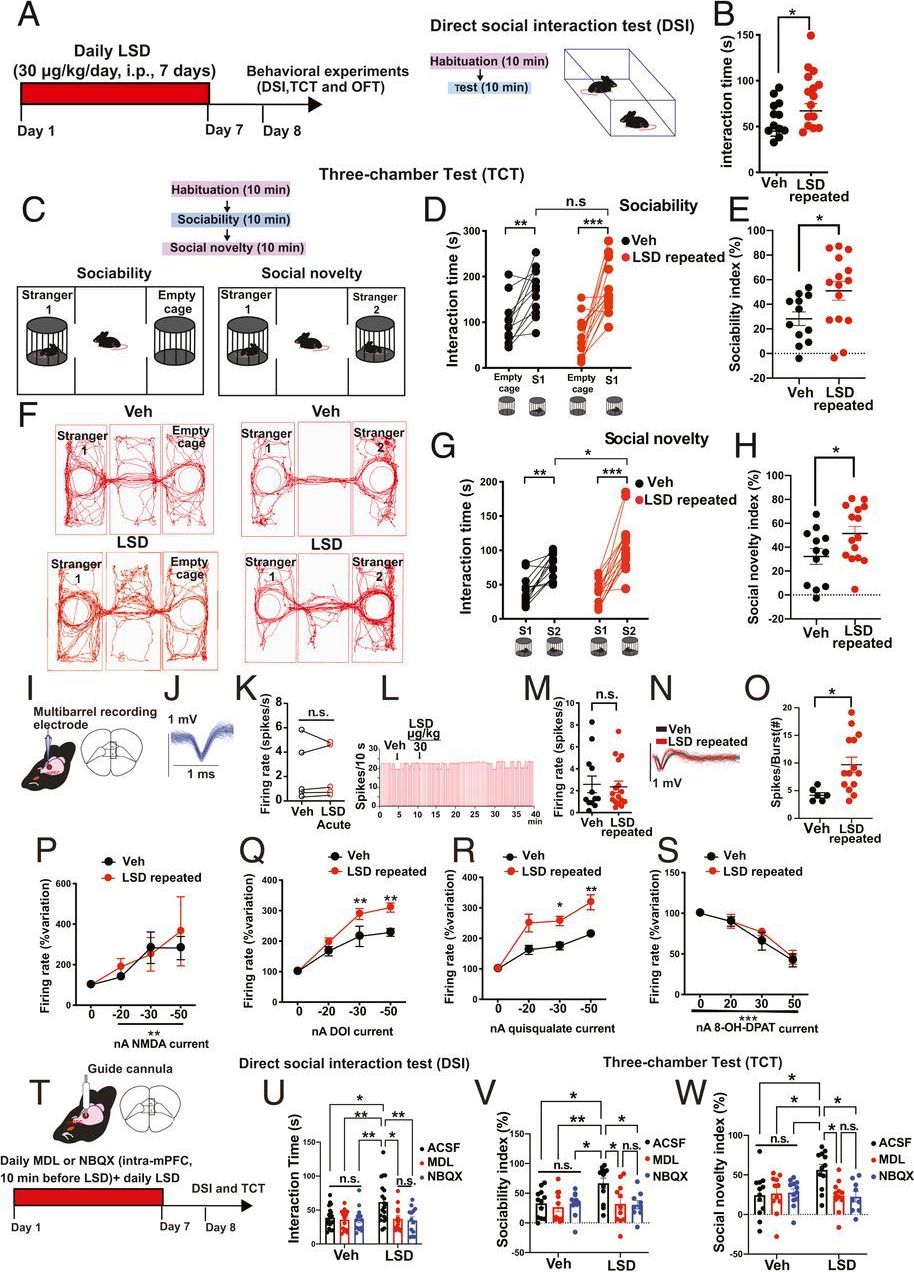Social behavior (SB) is a fundamental hallmark of human interaction. Repeated administration of low doses of the 5-HT2A agonist lysergic acid diethylamide (LSD) in mice enhances SB by potentiating 5-HT2A and AMPA receptor neurotransmission in the mPFC via an increasing phosphorylation of the mTORC1, a protein involved in the modulation of SB. Moreover, the inactivation of mPFC glutamate neurotransmission impairs SB and nullifies the prosocial effects of LSD. Finally, LSD requires the integrity of mTORC1 in excitatory glutamatergic, but not in inhibitory neurons, to produce prosocial effects. This study unveils a mechanism contributing to the role of 5-HT2A agonism in the modulation of SB.
All study data are included in the article and supporting information.
